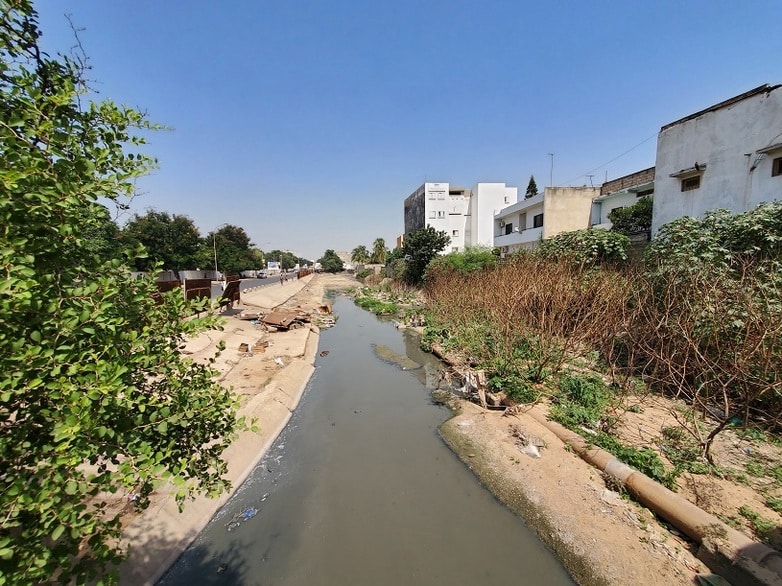Dakar, the capital of Senegal, will once again be the focus of a climate resilience project. In 2023, the West African country’s government will focus on the rehabilitation of the city’s catchment area rainwater retention basin, built in 2005. The project was announced on 19 December 2022 by the Director General of the National Sanitation Authority of Nigeria (ONAS), Mamadou Mamour Diallo.
The aim is to reduce the recurrent flooding that causes a lot of damage in the neighbourhoods of Dakar, mainly in Grand-Yoff, Liberté and Patte d’Oie. In mid-August 2021, for example, the inhabitants of several districts of the city found their feet in the water. To the dismay of tens of thousands of inhabitants, this scenario is repeated every year during the rainy season, which runs from July to September in Senegal.
24.4 million in funding
According to Onas Director General Mamadou Mamour Diallo, the existing catchment area basin will be destroyed and rebuilt by raising the walls. The project will also extend the capacity of the basin’s pumping stations, as well as the equipment and related facilities around the Dakar rainwater retention basin.
With a surface area of 7.70 hectares, an average depth of nearly 2 metres and a storage volume of 120 to 160,000 m3, this basin collects rainwater from Dakar neighbourhoods such as Bourguiba, Patte d’Oie and Grand-Yoff, by means of a water pumping system that drains it into Hann Bay. In addition to its ageing condition, the Dakar basin faces a number of difficulties, exacerbated by the pressures of urbanisation and population growth.
Read also – AFRICA: Floods will displace 2.7 million people by 2050
The Senegalese authorities estimate that the project, which will be launched at the beginning of 2023, should be completed during the winter period of the same year for a total financing of 16 billion CFA francs, i.e. nearly 24.4 million euros.
This project supports several initiatives underway in the city of Dakar to reduce flooding. These include the Disaster Relief Organisation (ORSEC) plan. This is a mechanism for coordinating relief operations at departmental, regional and national levels to manage disasters that may occur in Senegal.
Inès Magoum
